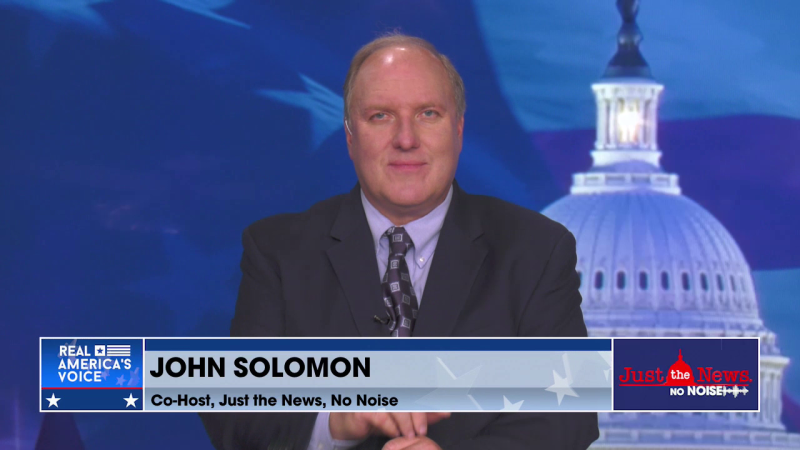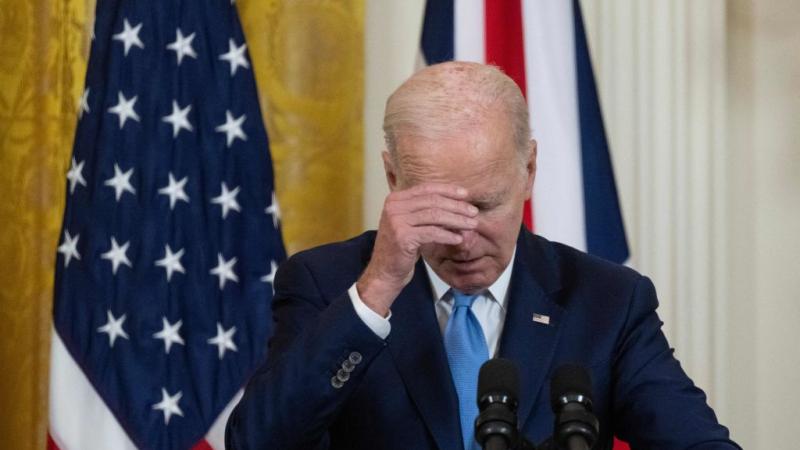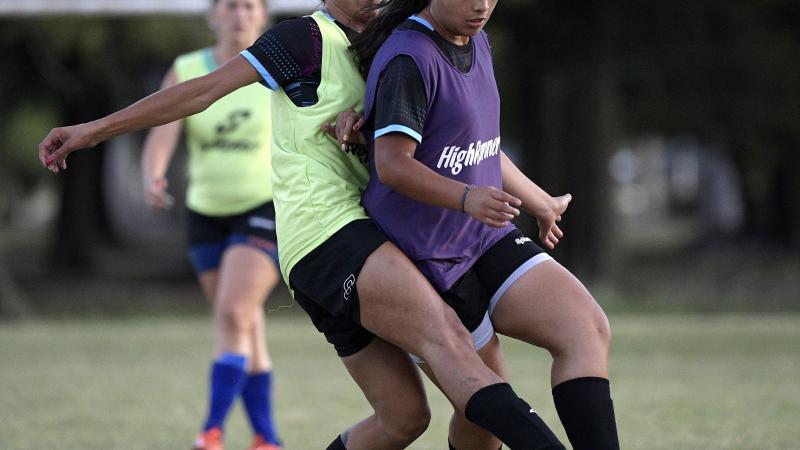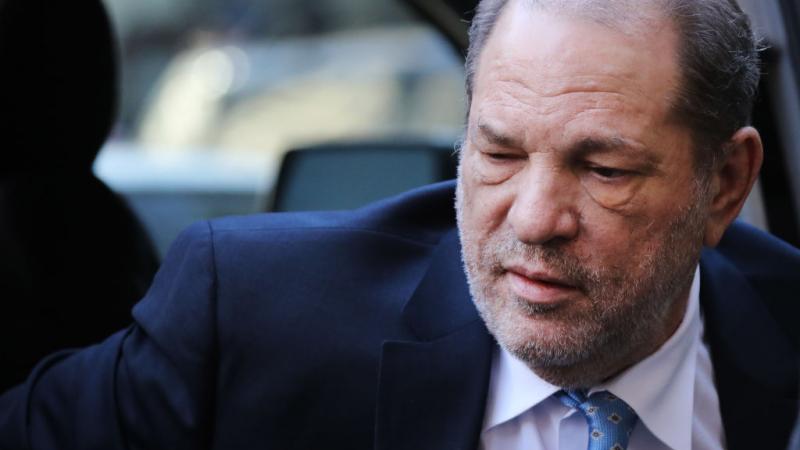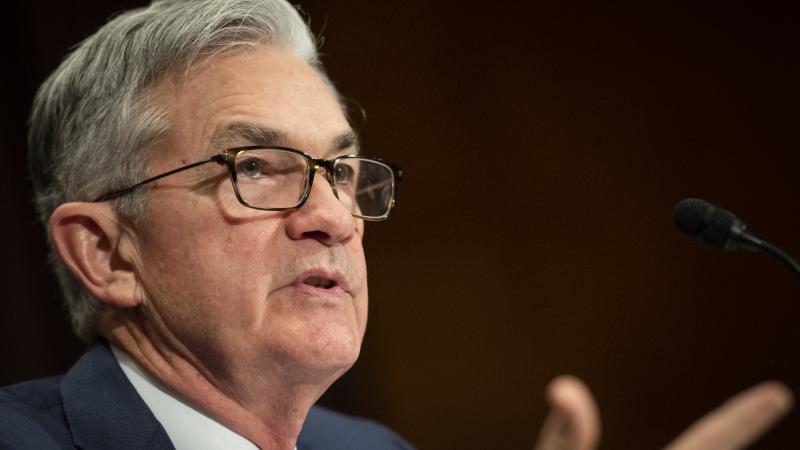A new faith: Study finds young turning to prayer, spiritual questions during pandemic
In a new poll shows 39% of students said they're praying more often, and 28% said they're thinking about spiritual issues more often since the coronavirus pandemic began.
A new study finds 39% of students said they're praying more often (38% of high school students and 39% of post-secondary students), and 28% said they're thinking about spiritual issues more often (24% of high school students and 31% of post-secondary students) during the coronavirus crisis.
The new poll commissioned by Young America’s Foundation (YAF) in partnership with The Federalist reveals the impact coronavirus has had on the everyday lives of today’s high school and post-secondary students.
"I think young people often think about the big questions in life as they come of age and seek to find a purpose and a place in this world," Spencer Brown, a spokesman for YAF, told Just the News. "When their futures are upended, like nearly half of the post-secondary students have been as shown in our poll, they seek solace and guidance — spiritual fulfillment is one such place they look. That said, there’s an unfortunate trend where, once things are good and lives are busy again, people are less likely to continue those spiritual practices. And, as this poll shows, Gen Z students prioritize things like exercise and saving money over going to church or being spiritual, so unfortunately that increase doesn’t seem likely to carry beyond our current crisis."
Conducted by polling firm Echelon Insights from April 24 to 27, the YAF/Federalist poll surveyed 800 current high school students and 800 current post-secondary students. The poll shows the rising generation is closely following America’s battle against coronavirus, and the 69% of respondents are concerned that they could contract the virus. The poll also found that four out of five young people surveyed are worried that their family members and/or friends could contract COVID-19.
Among post-secondary students, 29% reported losing their job or having their work hours cut, underscoring the pandemic’s economic impact on the next generation.
Brown said many churches were already adapting to changing habits and offering virtual or live-streamed services.
"I’ve seen many change in-person, small and community groups into weekly zoom sessions to continue fellowshipping," Brown said. "Churches and faith leaders shouldn’t be afraid to tackle the big questions and issues related to young people, even though they’re harder to dive into than the more feel-good messages. Digging into the hard questions are what young people need and want right now, and being a source of real discussion about these bigger questions about purpose might keep them involved once physical church doors are open again."
To read the full report, click the PDF below:
Rev. Anthony Thompson, a South Carolina-based pastor of Holy Trinity Reformed Episcopal Church of Charleston, endured the tragedy of burying his wife, who was murdered by a white supremacist in the 2015 shooting deaths of nine black churchgoers at the Emanuel African Methodist Episcopal Church.
"I believe that young people are far more interested in prayer and spiritual issues during the COVID-19 than before because everything they focused on or sought for security has come to a halt and is quickly fading," Thompson told Just the News. "Schools, businesses, corporations as well as churches are closed. Corporations, businesses and states are losing money every day, and unemployment is very high. All the things they depended on for security and happiness are gone, and with that so is their hope. I believe that young people are trying to retrieve that hope in God."
Thompson wrote about his journey in his book "Called to Forgive: The Charleston Church Shooting, a Victim’s Husband, and the Path to Healing and Peace."
"I believe that once they seek the Lord and find that hope in Him, that newfound belief in Him will lead them to trust God and to seek Him even more than before," Thompson said. "However, not all of them will continue on that path. Some of them will form a relationship with God, and others will seek God only in times of distress like the time they are challenged with now. I can only and sincerely speak of this concerning my own ministry, however I believe that some of our faith leaders are adequately prepared to handle the concerns of these young people as well as the new parishioners ... This is how we lead people to Christ, and through his Word we can surely answer the questions that these young people may need to hear concerning the dilemma COVID-19 has brought into their lives."
Rabbi Irwin Kula told Just the News that religious practice was already being disrupted by technology and other forces and those changes will likely accelerate after the coronavirus pandemic passes.
"In general at times where people are compelled to face their mortality, the fragility of life, their own powerlessness, there is an uptick in religiosity," Kula said. "We saw this after 9/11. Within three months things returned to their baseline. My sense is the trends that were present before this virus will actually accelerate. So institutional religion will continue to weaken, and churches and synagogues that were fragile and brittle before COVID-19 will be going out of business even sooner, but at the same time the spiritual/religious ways and webs of the 'Nones,' who were the fastest growing demographic in the religious landscape, will be more emergent."
Kula, a seventh-generation rabbi who is based in New York City, said in the wake of the coronavirus, he expects "mainstream institutional religion" will weaken, and that "extreme religion be it progressive or conservative will become more extreme, more polarizing and fewer in numbers." Kula also said he expects that workplaces will assume some of the jobs religious institutions use to get done for people.
"As for faith leaders, there will be both much fewer jobs for faith leaders and more creativity, talent, and depth from those who lead institutions that make it," Kula said. "My advice to faith leaders: Don't overestimate the importance of the increased blip in people showing up on Zoom. Make sure you are using your faith — its wisdom and practices — to meet real needs of people and not the needs of your institution. Make sure experience trumps creed, relationship trumps dogma, love defines truth, don't confuse your finitude with God's infinitude, be sure the God you are mediating makes people count as much as that God makes people accountable, and listen, listen, listen to the still, small voice."
Christian author and journalist Billy Hallowell told Just the News he was "not at all shocked" by the poll's results since he has observed "massive increases" in online church attendance and professions of faith nationwide.
"Whether young people stay committed to these newfound areas of interest remains to be seen, though I would speculate that at least a portion of these individuals surely will continue on that path once the pandemic concludes," Hallowell said. "I think there are countless church leaders across the U.S. who are ready and willing to tackle young people's concerns, and there are active efforts from evangelists like Nick Hall, among others, to reach youths. My main advice is to be ready and willing to be authentic, as this is a quality today's young people desperately need. Also, we need to be fearless in addressing questions and concerns. Life is complicated and speaking with honesty and biblical literacy will help fill some of the voids we've been observing among Millennials and Generation Z."
Dimas Salaberrios is a former drug dealer and now pastor of Infinity Bible Church in the South Bronx of New York City, a church he co-founded with well-known pastor Tim Keller.
"COVID-19 has given America an authentic reset," Salaberrios told Just the News. "Many parents for the first time have to spend more time together than at work, real time parenting rather then having a system do it, and young people in many cases are not impressed with what they see. Young people have to look at their lives for the first time, and that level of self-reflection is driving kids to ask for help that transcends physical limitations, and kids are engaging in Zoom prayer, conference call prayer, and private prayer."
Rasanath Dasa, former Hindu monk in the Bhakti tradition, told Just the News that the uptick in spiritual interest should not be surprising.
"My experience is that situations like this increase young people’s spiritual inquiries," Dasa said. "I remember that happened during 9/11 as well. How their quest continues is very dependent on the depth and quality of answers they receive from faith leaders, and their own depth of desire to answer the deeper existential questions of life.
Dasa, a former Bank of America investment banker who left Wall Street to become a monk in New York City — the epicenter of U.S. coronavirus infections — is now co-founder of Upbuild, a leadership development company. Dasa said faith leaders' ability to cope with these new spiritual journeys depends on how the faith leaders have been trained.
"Situations like this are complex, and given the equally complex world we live in, young people’s questions can only be answered with a very mature understanding of faith, circumstances, the young person’s personal experiences and the faith leader’s own depth of realization," Dasa said. "This maturity only comes with adequate training, and a deep and sincere spiritual practice. If faith leaders have received that kind of training, then yes they will be able to answer these complex questions, with empathy, compassion, broad-mindedness, and reason. My advice to them would be to actively seek the counsel of those who demonstrate that kind of maturity, and take very close and serious guidance from those individuals. In addition, I would also advise them to pray sincerely every single day for strength, intelligence, and humility to serve every person they meet, as God would want them to serve."
John Luppo is a pastor who serves as Darryl Strawberry Ministries Executive Manager for the baseball legend.
"I believe at this time people are interested because of COVID and feel they help," Luppo told Just the News. "God is the only source, nothing else. To follow up, these young people need to be discipled from a mentor and a church, or else they will lose interest and go back to the familiar."
Luppo said he believes faith leaders are up to the challenge, and "this can be one of the biggest revivals of all time."
"This is what Christianity is all about — helping people and leading them into a personal relationship with Jesus Christ," Luppo said. "Advice I would give to them is stop wasting time with the world, and get to know your creator. Life is short, and start realizing there is a God who loves you, and there is more to life for you in the spiritual."
Christian Union is a Manhattan-based organization that works with Ivy League students and alumni.
"It’s common in a time of catastrophe for people to ask deeper questions and turn their attention to God, and this would especially seem the case for young people because of their comparative lack of life experience," Matthew W. Bennett, Christian Union founder and CEO, told Just the News. "God in His mercy uses these times to wake us up so that we would turn to Him and walk in His ways. Our prayer is that many would turn to God as a result of this current pandemic."
Matt Perman is director of career development at The King’s College, a Christian college based in Manhattan.
"In the work that I’ve done with college students, we have found that one of the most decisive factors in whether young people continue to take their newfound faith seriously is whether they have a community of like-minded people to do life with," Perman told Just the News. "Friends, mentors, and all-around community. When it comes to Christianity, another component in whether people stay interested upon discovering the answers and hope that it brings is whether they accept it at a foundational level, rather than a superficial level. Those who connect with it and see the message of Christianity as the defining foundation of their life tend to stay committed and interested."
Perman said he thinks faith leaders are more equipped now than ever to handle the concerns of young people and new parishioners.
"For example, one concern young people have is whether faith leaders can answer their questions," Perman said. "They want to know things like 'Why would God allow this pandemic?' and the broader question it leads to: 'How can a good God allow suffering?' They also want to know what hope Christianity provides in the midst of trials like this. The good news is that over the last 30 years, an incredible amount of resources have been developed by highly respected and leading Christian thinkers. These thinkers range from pastors to academics to informed lay people. Their resources can be found on content-rich sites such as The Gospel Coalition, Desiring God, Gospel in Life, and many more. These sites are thriving and have millions of users every month."
Dan Rupple serves as CEO of Mastermedia International, which ministers to Christians in the media and entertainment industries.
"I am not at all shocked by these encouraging results, as we're seeing massive increases in online church attendance and professions of faith across the country," Rupple told Just the News. "Whether young people stay committed to these newfound areas of interest remains to be seen, though I would speculate that at least a portion of these individuals surely will continue on that path once the pandemic concludes."
Rupple said he believes "countless" church leaders across the United States are ready and willing to tackle young people's concerns, citing active efforts from evangelists like Nick Hall, among others, to reach young people.
"My main advice is to be ready and willing to be authentic, as this is a quality today's young people desperately need," Rupple said. "Also, we need to be fearless in addressing questions and concerns. Life is complicated, and speaking with honesty and biblical literacy will help fill some of the voids we've been observing among Millennials and Generation Z."
As society debates when and how to open the economy during the coronavirus pandemic, Rupple said this moment gives young people a time to ponder life's even bigger questions.
“In today's post-modern culture, I think we have a tendency to place excessive or perhaps sole trust in science, technology, government or education," Rupple said. "While each of these institutions is a necessary, God-initiated gift to our world, when our hope in them wanes, disappoints or falls short, it is easy to sink into varying degrees of despair. The alternative is for humankind to look beyond this physical world to the Creator of all things for hope and assurance. I think that this is what we are witnessing now, during the global season of disruption.”


